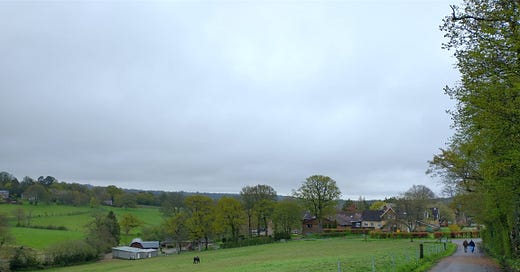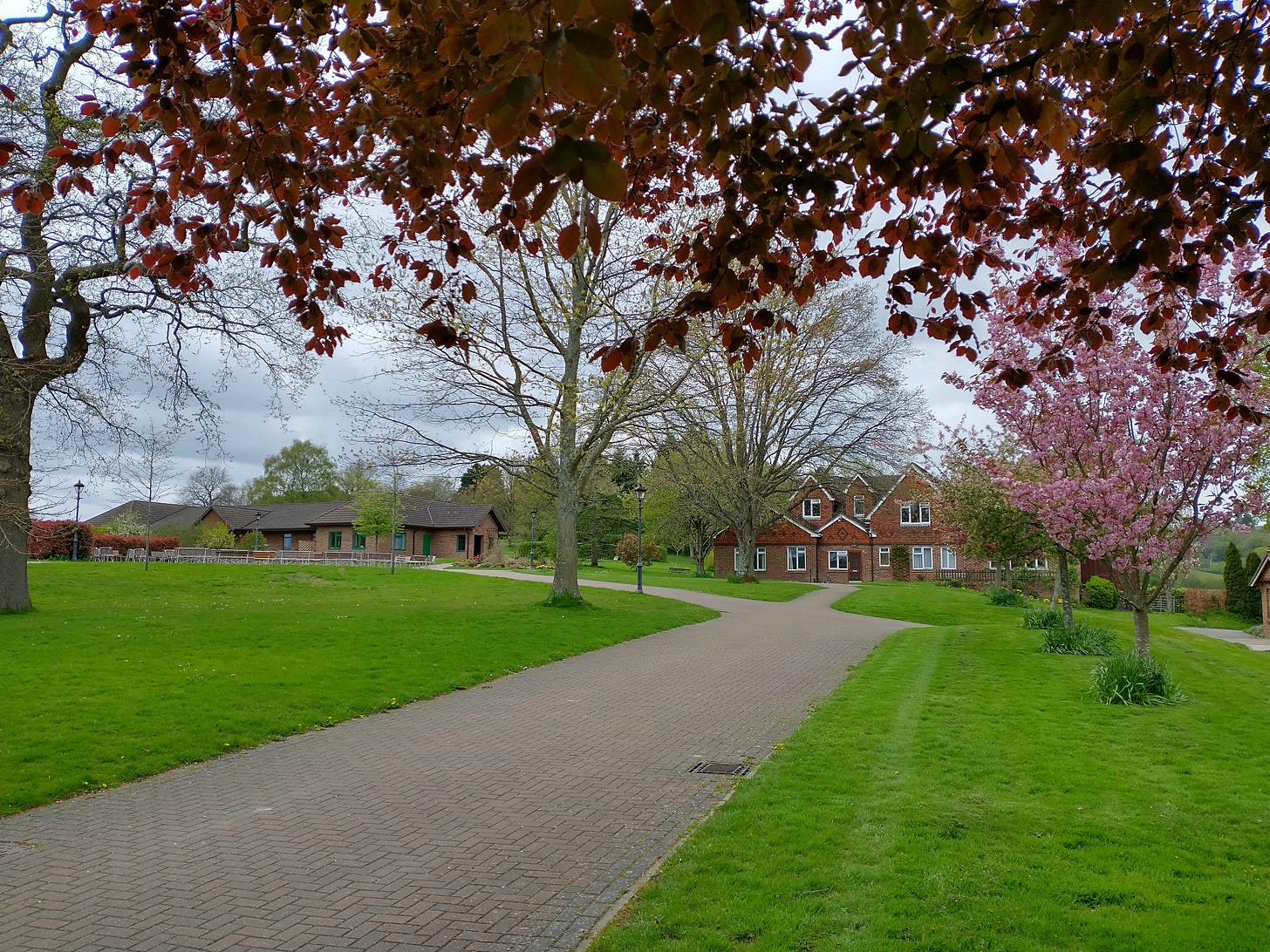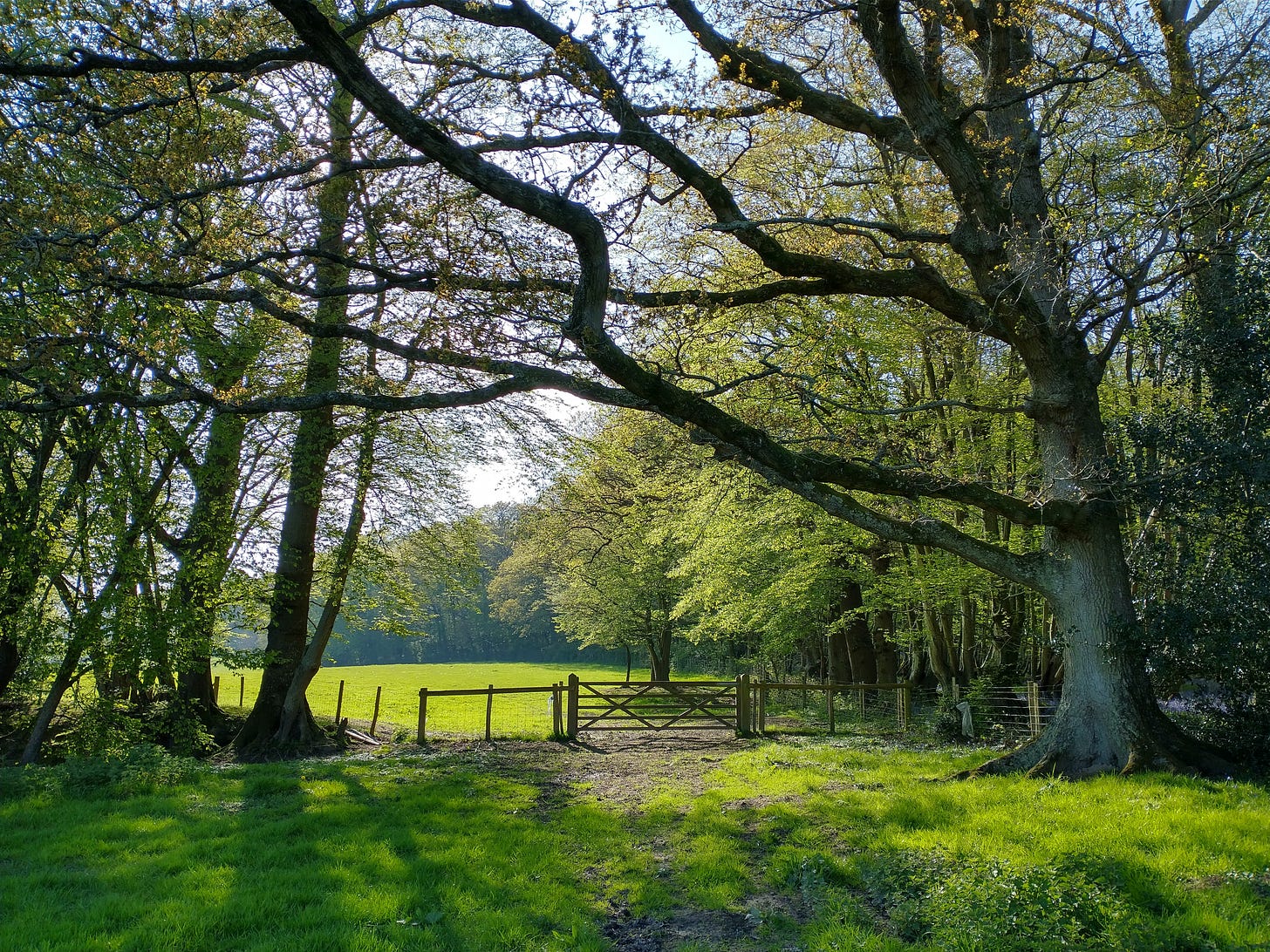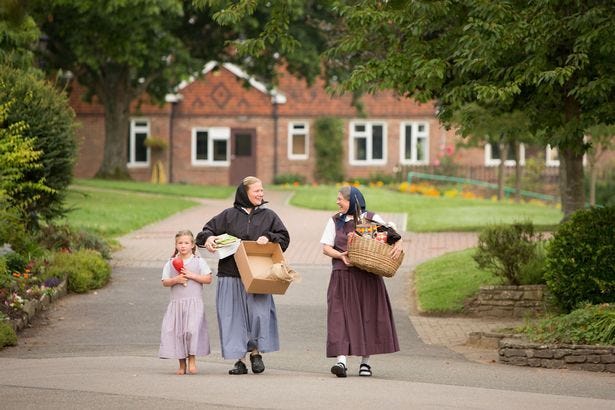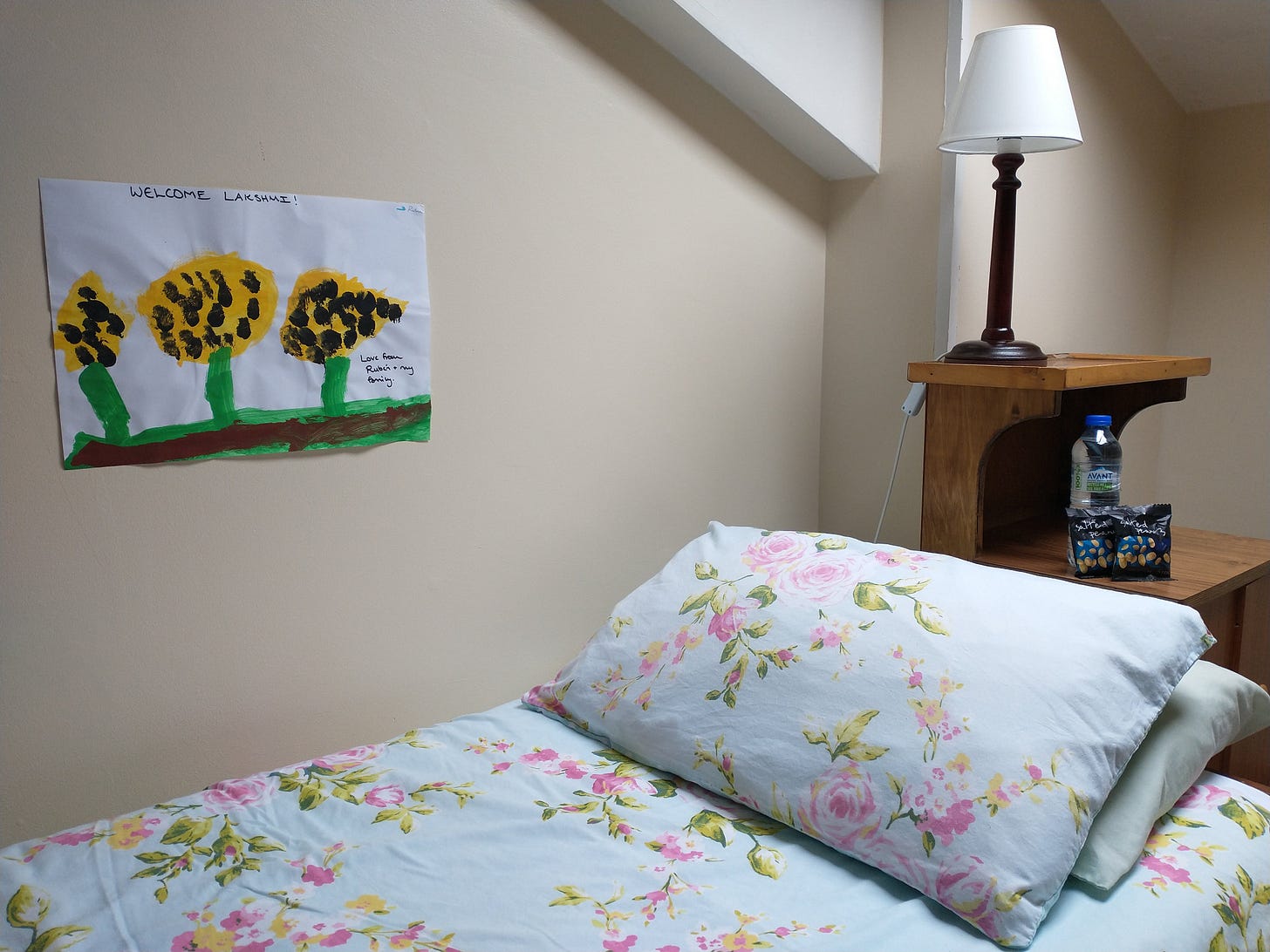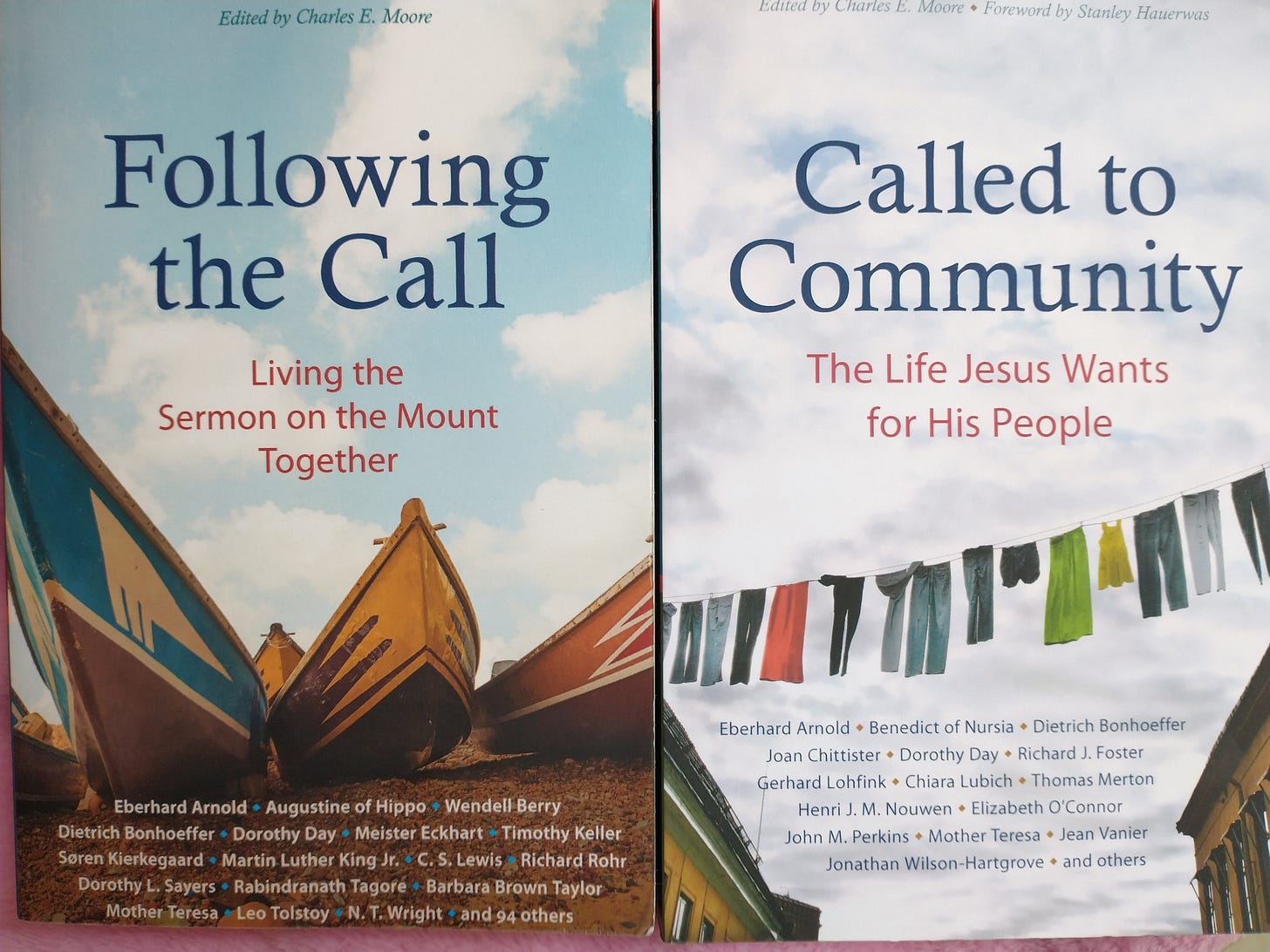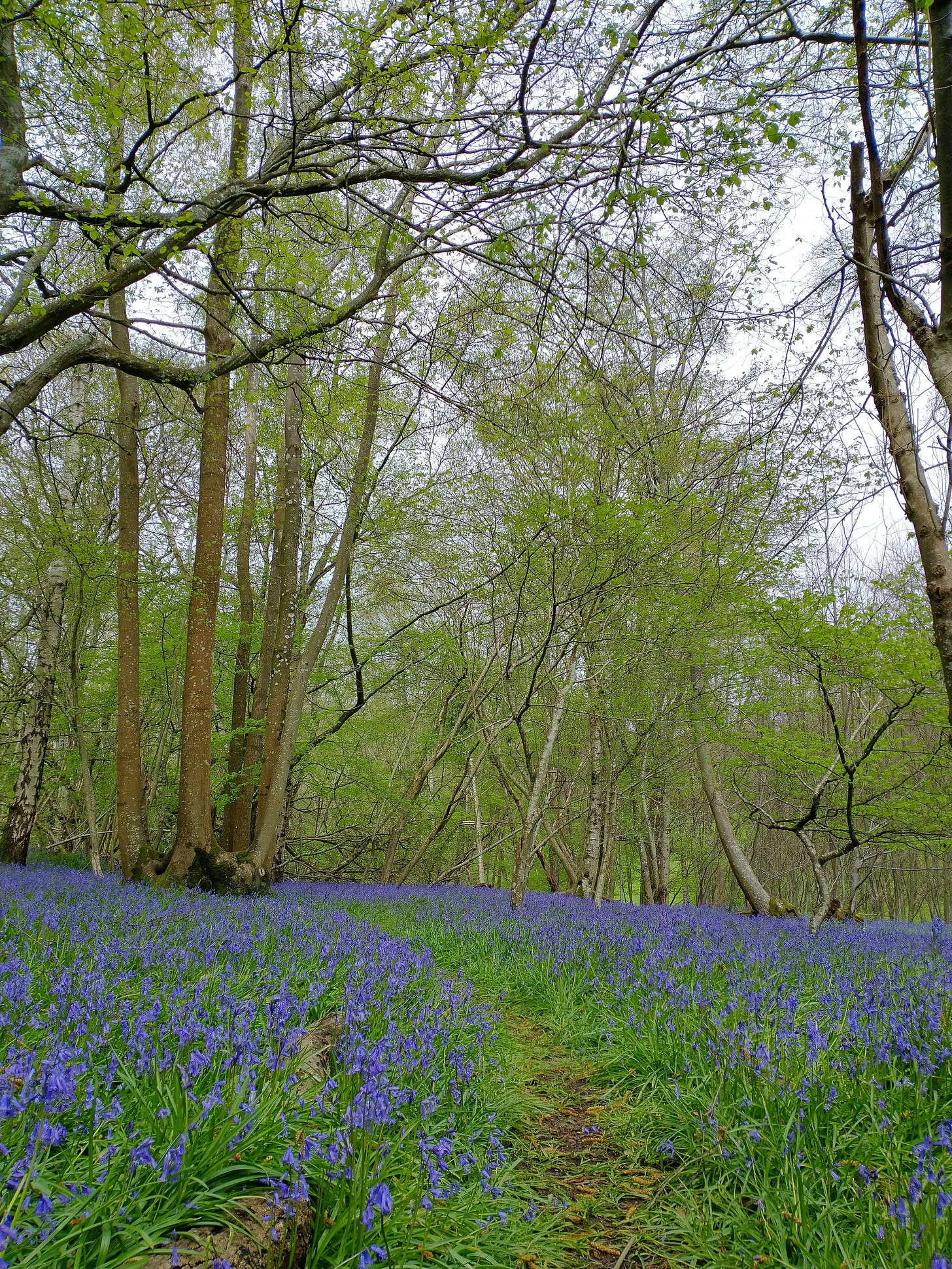** If you are between the age of 20-30 and interested in experiencing life with the Bruderhof check out this opportunity**
The Bruderhof is a Christian Anabaptist community which was ‘founded in 1920 by a group of young people seeking answers to the widespread devastation and chaos of post-war German society1’. Over 100 years later, the Bruderhof not only still stands, but is ~3000 members strong, with communities present on 5 continents.
With the exception of traditional monastic communities, this makes the Bruderhof the longest-standing Christian community I am aware of - so of course I had to give them a visit2!!! Off I went to spend 4 nights with their Darvell community in East Sussex over the Spring bank holiday and what a precious and thought-provoking time it was.
The Darvell Bruderhof community consists of ~300 members across all ages who live in community together in a village complex (which was converted from a disused TB hospital). The community operates a business/factory called “Community Playthings” which designs and builds wooden children’s outdoor, school equipment/toys. Alongside working in the factory which provides for the community financially, members work to maintain the running of the community (e.g. in the kitchen, laundry, nursery, cleaning). This is punctuated by shared community lunches, time to be with and care for family and neighbours, and much singing!
During my time there I had a go working in the factory (quality inspecting wooden chairs) but I spent most of my time working in the industrial kitchen where I felt quite at home bulk-cooking food, and took a lot of delight in the industrial potato-peeling machine!
I was also delighted to have enough free time to explore the truly stunning surrounding countryside, scattered by a heavenly balance of picturesque fields and majestic mature woodlands…
In between the working and the walking, I found myself lovingly ping-ponged between different families and couples desperate to have me around for breakfast, dinner and post-dinner walks and chats! And whether by invitation or by just spontaneously going about the day, I was blessed with SUCH rich and beautiful moments with so many members of the community from ages 3 to 91!
Unfortunately, the opportunity didn’t present itself to record any conversations, but either way, it would have been impossible to capture the gentle wisdom and inspiring selflessness which I witnessed in the many ‘pop-up’ conversations I had. The reflections in the second half of this blog are an attempt to distil the many things which were shared with me.
Also, if you are not familiar with the Bruderhof, the picture below kinda depicts the vibe:
As you can imagine, such a traditional-looking community has captured the curiosity of many, and various articles have been written, and documentaries made, about them. Having watched this documentary, and having read some things about them, it strikes me that these media depictions are the product of a rather cynical secular eye. With such eyes, the Bruderhof can easily be portrayed as a sexist, backward cult (similarly to how Catholics could be portrayed as worshippers of wafers, or cannibals I guess!) so in this blog I hope to shed light on some of the nuances and add faith back into the picture!
Below, I give a very brief overview of the Bruderhof community but I encourage you to visit their website and watch the above-mentioned documentary to gain a better sense of who they are.
I then move on to share some of my observations and reflections from sharing life with them.
Brief Overview
The Bruderhof is an Anabaptist community, with Anabaptists being a Christian movement/denomination arising from the time of the Reformation. In asking a Bruderhof member what characterises the Anabaptists he mentioned:
belief in adult baptism;
a strong striving to live out the Christian faith in all aspects of life;
a scepticism around church buildings, liturgy and overly intellectual theology, which are perceived as distractions to living the Gospel.
They aspire to live out the Gospel as fully as possible, following the example of early Christians. This involves:
Sharing all in common, with no personal ownership of money or possessions;
Loving and caring for all, across all ages and levels of ability or as beautifully put on their website “the welfare of the oldest, youngest, and weakest is a shared priority”;
Maintaining traditional family values around sex and marriage.
Their history includes fleeing Germany (due to the second world war), fleeing England (due to war-related Germanophobia), and finding themselves in Paraguay for a number of years. The community’s early life is characterised by immense hardship, and only in recent years has the community been able to enjoy a more comfortable life.
To become a member, one makes a lifelong vow of commitment to the community and its values. Members’ children are born and grow up in the community but only formally become members if they choose to from the age of 21+3.
Practically, their life in community involves4:
Regularly (most lunches) eating together as a whole community;
Regularly singing together (in glorious 4-part harmony!!);
Living in family groups comprising of children, parents and grandparents, with single young adults being allocated a family group to be a part of too;
Working to sustain the running (laundry, kitchen, cleaning) and financing (‘Community Playthings’ factory/business) of the community;
Adapting work rhythms to cater for/prioritise the welfare of community members in need of more care (e.g. children, elderly and disabled).
Some of the things which stood out to me from my time with the Brudehof:
Young Family Life: For the duration of my stay I was welcomed into a host family comprising of Oma, Opa, Mum, Dad and two little boys of 5 and 3 years. I have little exposure to young children in my everyday life, so what a delight it was to spend time with this young family! It was a privilege to be invited into the realism of parenting, and I was deeply impressed and touched by the loving parenting I witnessed. If I ever have kids, I might just pop back off to the Bruderhof for some parenting tips 😅!
A Striving for Love: It was emphasised to me how strongly the community strives for a perfect love between brother and sister5. Starting from a place of acknowledging they are only human and that mistakes and fall-outs are inevitable, they strive to love fully and sacrificially, committing to the challenging inner work of forgiveness, making amends and forever growing in the practice of love.
Variations of the above consistently came out in conversations with different members, making it clear to me that this is the shared culture of the Bruderhof. Committed to this aspiration of challenging and demanding love, there is a purity of heart about the place which I found deeply comforting to be a part of.Humility: Building on the above, a spirit of humility and learning from past wrongs, also readily permeates the Bruderhof. They will very readily bring up past mistakes and parts of their history that they are not proud of, which they couple with a conviction to perpetually improve the community in the direction of love. Examples include:
Acknowledging that not enough has been done in the past to prepare their children for life outside of the Bruderhof, and now being incredibly conscious and intentional about how this can be improved.
Acknowledging that historically the community addressed mental health issues primarily through spiritual means, and now recognising the multi-faceted approach needed for healing including medication, therapy and lifestyle changes.
For both examples, I witnessed the seriousness, commitment and practical steps towards improvement for the sake and for the love of fellow community members.
Jesus at the centre (not community!): It was emphasised to me in multiple conversations that they strive to keep Jesus at the centre - not community. This was re-emphasised during a more turbulent time in their history, and it was in re-aligning around Jesus as the centre of their life that ultimately enabled the community to re-gather itself.
Practically speaking, this means that love of Jesus through love of brother and sister is priority over all things - anything else is a matter of practicality.Remaining attentive to the Spirit: Tradition for the sake of tradition is not what the Bruderhof are about. They are cautious of not becoming a static movement, and instead aspire to be open to the movements of the living Spirit.
Commitment & Obedience: I feel like these are increasingly unpopular words in today’s individualistic Western society, but I was profoundly touched by the depth of commitment and obedience the Bruderhof have as individuals within a community, and the cultivating of selflessness and love which emerges from keeping such values. It definitely made me reflect on my own sense of self-righteousness and selfishness…
I imagine much of the long life and success of the Bruderhof is a result of this commitment to obedience, as carefully managed under the authority of a pastoral team6. Whilst authority and obedience can send alarm bells ringing7, it was apparent that decisions are made in the community's best interest and in loving consultation with the individuals/families affected. The community genuinely desires for each of its members to find fulfilment (I truly felt this), however it is also apparent that individuals and families make huge sacrifices in the name of obedience, trust, love and the best interests of the wider community.Being Sent: Building on the above, members are often switched to different jobs within the community, or moved to different communities across the world in accordance with where there is need. Of course this demands obedience and sacrifice of the individuals and families in question, but I was also reflecting on the liberation of being personally placed where a need has been identified and which someone believes you can help with (especially in the context of a society where people increasingly struggle with a sense of purposelessness).
A Society of Care: I was really taken aback by how the Bruderhof’s way and rhythms of life are set up to prioritise childcare, care of the elderly and care of the disabled. For example:
Mothers start work later, and end work sooner, to enable them to look after their children pre and post-nursery/school8;
The disabled and the elderly are allocated full/part-time carers in accordance with their needs. Carers are members of the community (some of whom are also trained nurses) with care shifts being a type of community ‘work’ and carried out with much love and care for human dignity;
The elderly continue to contribute to the life of the community as suits them e.g. working 1hr in the factory, being available to help with young children;
When a member of the community dies, grieving and helping bereaved families takes priority, with work taking a back seat;
Families help cover each other’s children, and there are always childcare provisions in place if there are community meetings/events which are less child friendly.
The contrast emphasised to me how work-centric our society is, and how it revolves around able-bodied people who are fit to work. The Bruderhof are testimony to a successful and financially viable multigenerational care-centric society - if only mainstream society could follow this example!
Spiritual Capitalism: One of the more elderly members shared how he had joined the Bruderhof in his early 20s, partly in a move against capitalistic society. He then humbly shared that he found himself turning into a “spiritual capitalist”, climbing the spiritual ladder with a sense of betterment compared to others. I liked the term, encapsulating something to be aware of and caution against within myself.
Worship: Anabaptists, there are no churches or chapels in Bruderhof communities, as well as no liturgical forms of shared prayer. I did find myself missing these things a bit (!) but I appreciated witnessing how people nurtured their faith in the home through song and reading extracts from Christian books at the end of a meal.
Future Challenges & Questions:
In recounting the history of the community, a couple were remarking on how it has only been in the past 30 years or so that the community have been able to live more comfortably. They alluded to the risk of “comfort creep” and the risks associated in becoming too comfortable as a community.
I wonder whether the current ‘comfortableness’ of the community makes it harder for vows of membership to be rooted in the Gospel, and perhaps makes it easier for vows to be made out of convenience/satisfaction with the current way of life? If so, I wonder how this will affect the Bruderhof in the years to come.
It has been acknowledged that additional financial income will need to be/is being thought about in order to sustain the community’s growing membership.
As with many churches, despite the loving and best of intentions, and most likely because of them, I imagine the Bruderhof could potentially be a very difficult place for children who identify as genderqueer to grow up in. I trust in the Bruderhof’s striving for love and compassion and I wonder how it is they might grow in supporting queer members of their community.
Closing Remarks
I have focused on a faith-based and Christian-community-exploration perspective, but the Bruderhof is so counter-cultural that there is so much more which could be commented on and explored (!!), and from all different angles too: sociological, political, anthropological… It was tempting to touch on some of these angles and counter some of the stereotypes held against them, and whilst I tried to refrain from such comments here, I would be delighted to share additional thoughts/insights if you are curious - just get in touch/ask me about it😊!
It is a recurring theme in my exploration of Christian communities that prayer and God must be at the centre, and community forms around this (for any fellow scientists, the language of ‘nucleation point’ is coming to mind!). ‘Successful’ communities seem to be those who keep their eyes, hearts and minds focused and open to God, helping them to love others, and enabling them to trust, grow and change in accordance with the Spirit, and consequently withstand adversity and human ideals of community which can lead to rupturing disagreements. I am grateful for the Bruderhof’s 100 years of community and their willingness to share their mistakes and wisdom with younger communities.
I found God to be very present in the sacrificial love for brother and sister in the Bruderhof, but in travelling back home through London, I was powerfully confronted by the presence of Jesus in the homeless. It reminded me of how strongly I experience, and feel challenged by, God in the needs of the stranger.
I am therefore excited by my next stop (!); a young adult Church of England community in Birmingham, ministering to the local church and the needs of the local people.
À bientôt👋🏽🌻!
Thank you Fran, Curtis, Oma Ida, Opa, Reuben, Rudi and Dandelion the lamb, for welcoming me into your family and looking out for me. It was a real gift to share in your family life :). To Ian and the Barth family, thank you for having me around on my first evening and for the fascinating exploratory conversation, and Ian for your help in organising my visit. Channah and Allan, thank you so much for dinner and the parcel of books (!), Rebecca thank you for the beautifully rich alto accompaniment to our singing, and Oma thank you for your beautiful, rich, warm smile and for the dice game! Tamara and Mercy, thank you for your very kind and patient kitchen instructions! Mercy, I also very much appreciated our conversation whilst collecting apples - thank you! Sarah thank you for your company and sharing of your experience whilst cooking together :). Irene and family, thank you for having me around for such a tasty breakfast, and for the fellowship shared. To the couple who took me on an evening walk, the couple who invited me around to their flat post-dinner (I’m so sorry I can’t remember your names, but I have your faces!), thank you for inviting me to spend time with you, and sharing some of your life with me; I felt so welcomed and valued, and loved hearing your stories. Malcolm, thank you for our time connecting over Iona. To the woman moving from Beech Grove at the Meier’s high tea (I’m so sad I can’t remember your name!) and to - was it Grandpa Joe(?) - from Newcastle, thank you for the deep, honest, rich and wise conversation you shared with me which has left an especially profound impact. A special thank you to Tikva, for your gentleness and careful looking out for me - it really meant a lot and your humility and kindness touched my heart. Thank you also for the books :). And to the many others, whose names I don’t have, but whose smiling faces welcomed me so warmly.
Quoted from the Bruderhof website: https://www.bruderhof.com/
Thank you to Ian, Tim and Toby for the original inspiration to spend time with them!
All teenagers/young adults are very highly encouraged to leave and work/study outside the community as part of a discernment around whether they truly want to commit and profess to becoming a life-long member.
Exact rhythms deviate between the different Bruderhof communities worldwide.
As in many Christian circles, ‘brother’ and ‘sister’ are used in the wider, beyond-biological sense of the word, emphasising that all humans are united as children of God and as brothers and sisters in Christ.
The Bruderhof is led by a group of pastors (often husband-and-wife teams), which, as far as I could tell, are somewhat organically nominated as such in recognition of pastoral qualities. The pastoral team remain attentive to the needs of the community, and consequently initiates the movement of individuals into different work roles, or the movement of families to sister communities, dependent on need.
In a society where leadership is so often corrupt, selfish and abusive, it’s no wonder that commitment and obedience seem like a bad idea!
I realise this may seem rather sexist for some of you but it seems an improvement to me on mainstream society where mothers often work full time AND do most of the childcare/housework.

